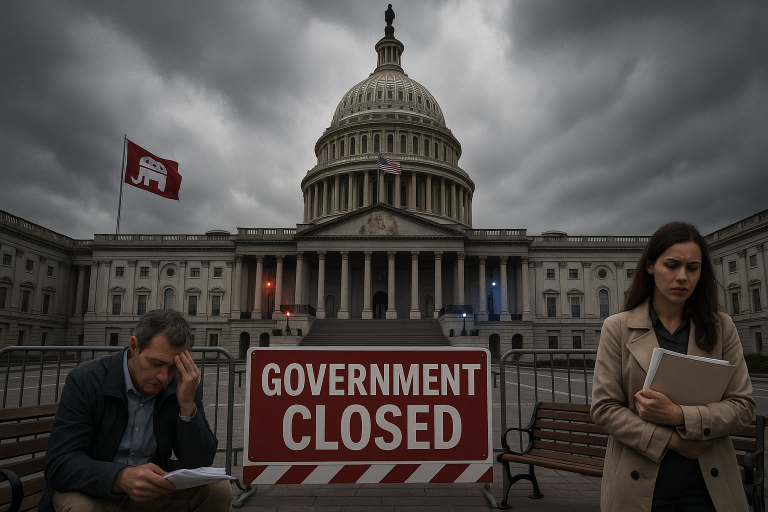The United States government shutdown entered the eighth day on Wednesday after both Republican and Democratic efforts to pass short-term funding measures failed to clear the Senate.
Despite multiple attempts, lawmakers remain deadlocked over the terms of reopening the government, deepening concerns about the economic and political fallout from the prolonged standoff.
Senate rejects both GOP and democratic funding measures
In a day of back-to-back votes, the Senate once again failed to advance either party’s proposal to fund the government.
A Republican-backed House measure to keep the government open until November 21 fell short in a 54–45 vote, marking the sixth time the procedural motion has failed.
No new Democratic support emerged, and Sen. Ted Cruz did not participate in the vote.
Earlier in the day, the Democratic measure that would have funded the government through October 31 and extended health insurance tax credits also failed in a 47–52 vote along party lines.
Both bills required 60 votes to advance.
So far, Sens. John Fetterman, Catherine Cortez Masto, and Angus King have been the only lawmakers to cross party lines in support of the GOP’s proposal.
Meanwhile, Sen. Rand Paul has consistently opposed the Republican-led measure, citing fiscal concerns.
Republicans need at least five additional Democratic votes to move forward with their bill, but prospects for a breakthrough remain slim as both sides continue to blame each other for the impasse.
Partisan divide deepens amid political tensions
The failure to reach an agreement underscores the deep divisions in Congress over spending priorities and policy riders attached to the funding proposals.
Democrats have pushed for short-term funding extensions that maintain existing spending levels and protect key social programs, while Republicans have sought to tie any deal to broader fiscal reforms and limits on discretionary spending.
The deadlock has led to increasing frustration on Capitol Hill, with federal employees and contractors facing another round of uncertainty over pay and operations.
Dispute over Arizona Democrat’s swearing-in adds to friction
Tensions flared further on Wednesday when Arizona Senators Mark Kelly and Ruben Gallego, both Democrats, confronted House Speaker Mike Johnson (R-La.) over delays in swearing in Adelita Grijalva, a Democrat elected on September 23 to fill her late father’s congressional seat.
Democrats accused Johnson of intentionally postponing Grijalva’s swearing-in to prevent her from signing a discharge petition related to the release of files connected to Jeffrey Epstein.
Johnson denied the allegation, insisting that the delay stemmed from procedural norms since the House is currently out of session.
“There’s a long tradition here and a process of how we administer the oath,” Johnson said, noting that Grijalva’s ceremony would take place once the House reconvenes.
He added that Democrats should “vote to end the government shutdown” instead of focusing on internal disputes.
When Democrats pointed out that two Republicans had previously been sworn in while the House was out of session, Johnson responded that those instances were different because a swearing-in day had already been scheduled and the lawmakers’ families were present in Washington.
He added that Grijalva’s swearing-in has not yet been scheduled, as her election occurred after the House recessed on September 19.
Kelly countered that the delay left 700,000 Arizonans without representation in Congress, dismissing Johnson’s explanation as political maneuvering. Grijalva later posted a response on social media, writing, “The people of my district need representation, NOW!”
The post US government shutdown persists as Senate fails to advance funding bills appeared first on Invezz

